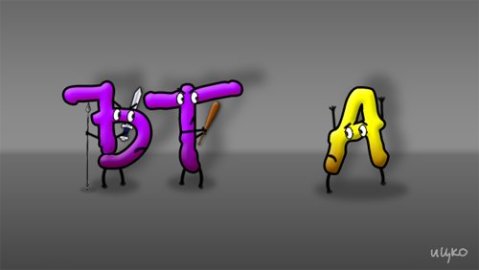Are You Sure?
16.07.2012 § Leave a comment
A mini-post about an interesting quirk of the Bulgarian language. In Bulgarian, сигурен (siguren) is an adjective that means “certain, doubtless”. However, when answering a yes/no question, “sigurno” does not mean “doubtless”, it means “perhaps”, which is far less definite. Add this to our shaking heads for “yes” and nodding for “no” and it’s no wonder Bulgaria is poorly understood 😉
Ordinal Numbers in Bulgarian
15.06.2012 § 1 Comment
I hope your counting in Bulgarian is significantly up to snuff to tackle the thorny issue of ordinal numbers (“first”, “second”, etc.) which are crucial for correctly saying dates in Bulgarian.
The reason ordinal numbers are a thorny issue is that unlike cardinal numbers, they are gendered. We remember, class, that Bulgarian has three genders: masculine, feminine and neuter. So, there are three forms of “first” in Bulgarian:
- M: първи (púrvi)
- F: първа (púrva)
- N: първо (púrvo)
The nice thing is, once you learn the ordinal forms in Bulgarian, you can accord to gender simply by changing the suffix: -и for masculine, -а for feminine and -о for neuter.
Numbers in Bulgarian
11.06.2012 § 5 Comments
Bulgaria uses the Indo-Arabic numeral system known around the world.
We begin, as always, counting from 1 to 10.
- Едно (ednó)
- Две (dve)
- Три (tri)
- Четири (chét’ri)
- Пет (pet)
- Шест (shes‘)
- Седем (sédem)
- Осем (ósem)
- Девет (dévet)
- Десет (déset)
The Definite Articles of Bulgarian
06.06.2012 § 9 Comments

Image source: Icko (http://grasshopper.xroads-bg.com/open.php?id=21)
Never mind five names for “uncle”, the definite article in Bulgarian is a truly cross-eye-inducing grammar nugget.
The definite article in English is easy: “the“. That’s it. The tub, the king’s wizards, the pretty pony. Not so in Bulgarian.
Words for Relatives in Bulgarian
05.06.2012 § 10 Comments
Bulgaria is a place where you cannot be farther than 500 km away from your family, no matter how hard you try. Families often live in the same area or, if they don’t, one can always take a quick holiday to visit the folks на село (na selo, meaning “back in the village”). In fact, children often spend the summer months with one or the other set of grandparents somewhere in the country: in a village, a town or a small city.
The centuries-old familial traditions and bonds are reflected in the Bulgarian language. Much like the proverbial Inuit and their many words for snow, there are five different words for “uncle” in Bulgarian, four for “aunt”, three for “brother-in-law” and four for “sister-in-law”.

